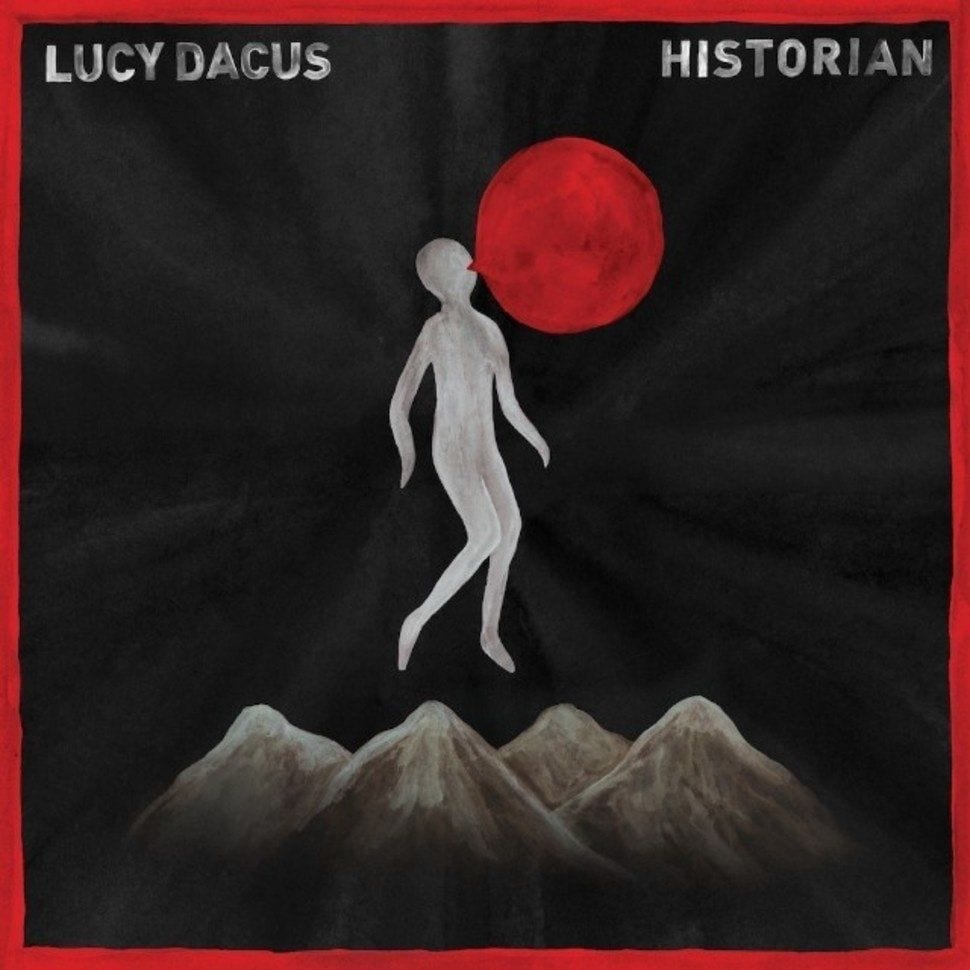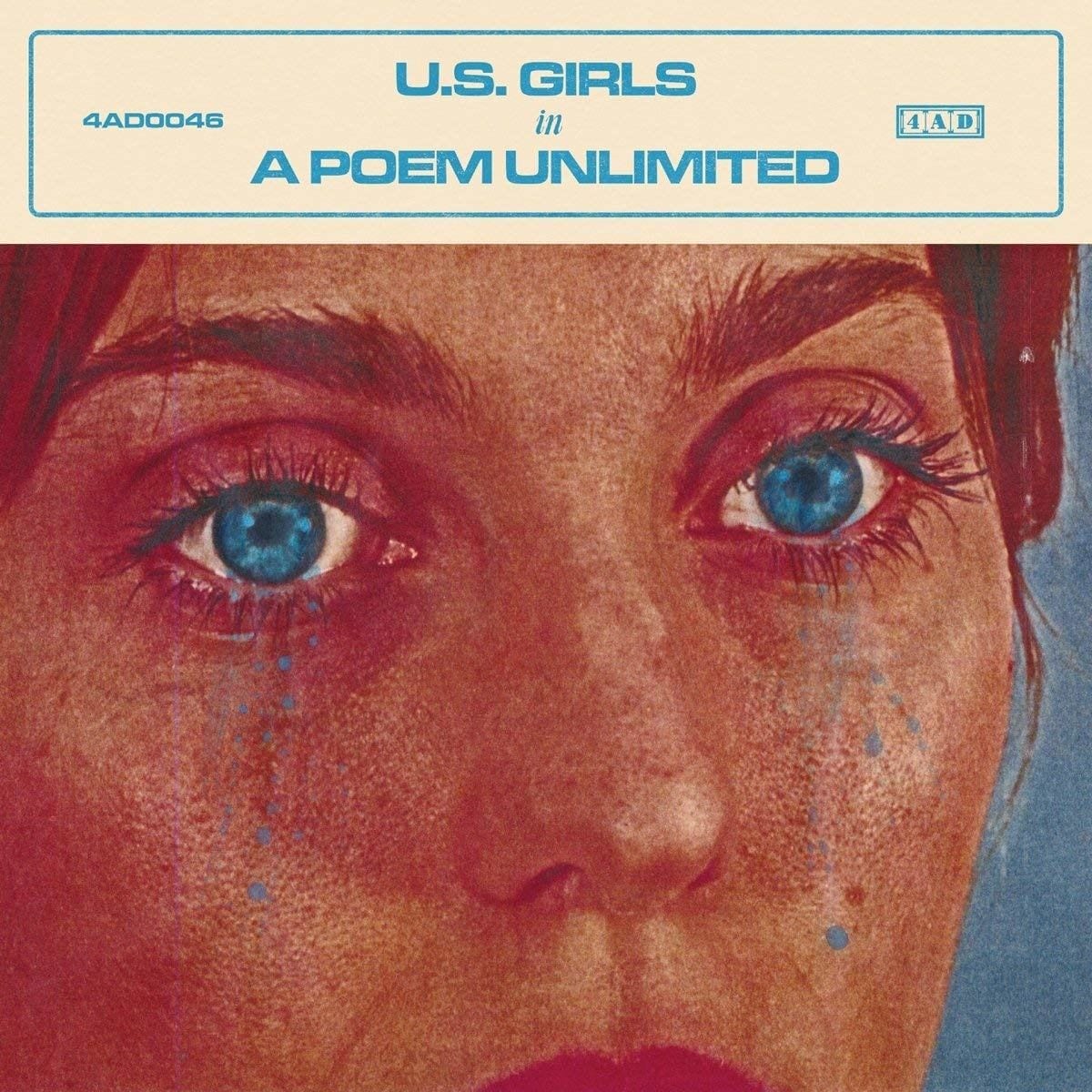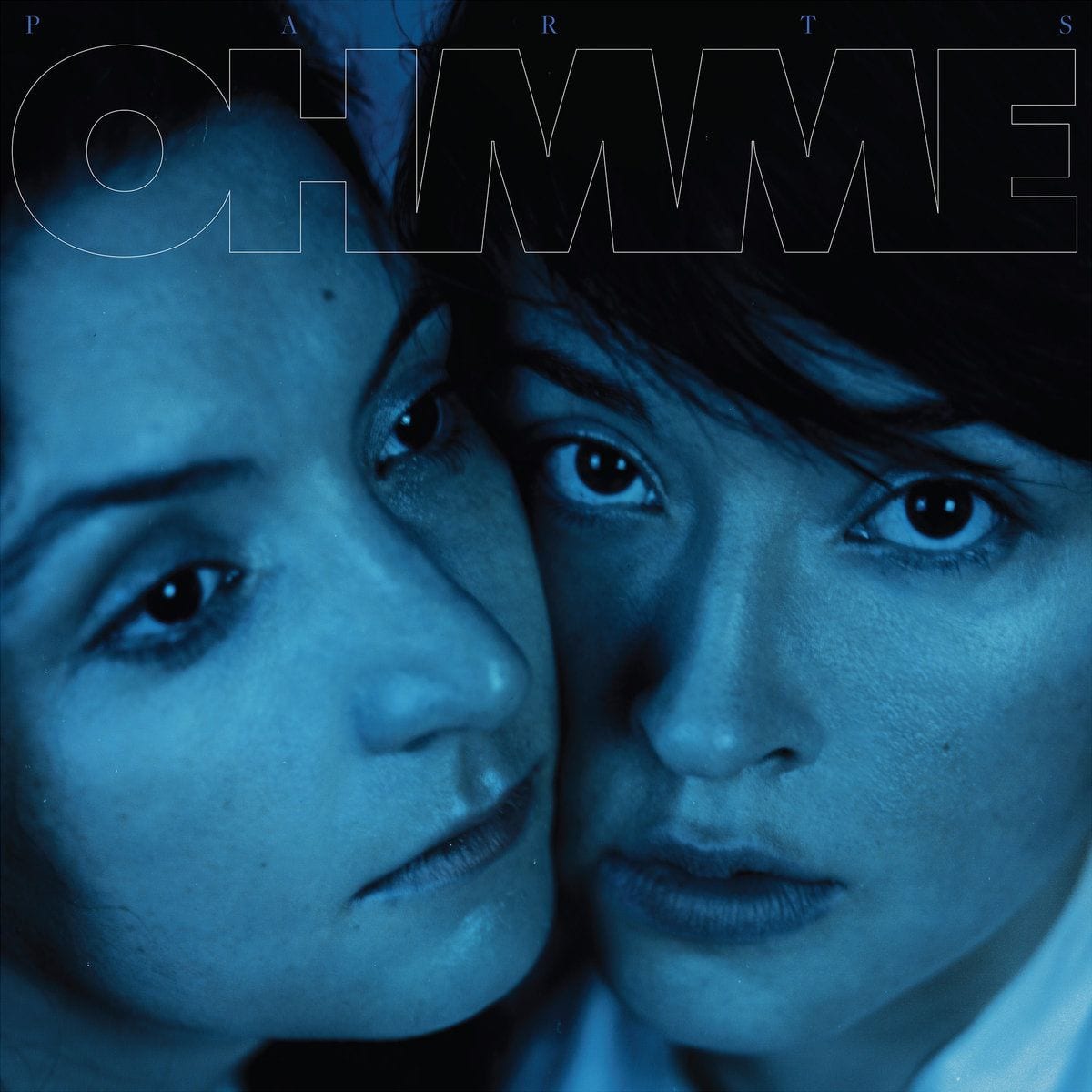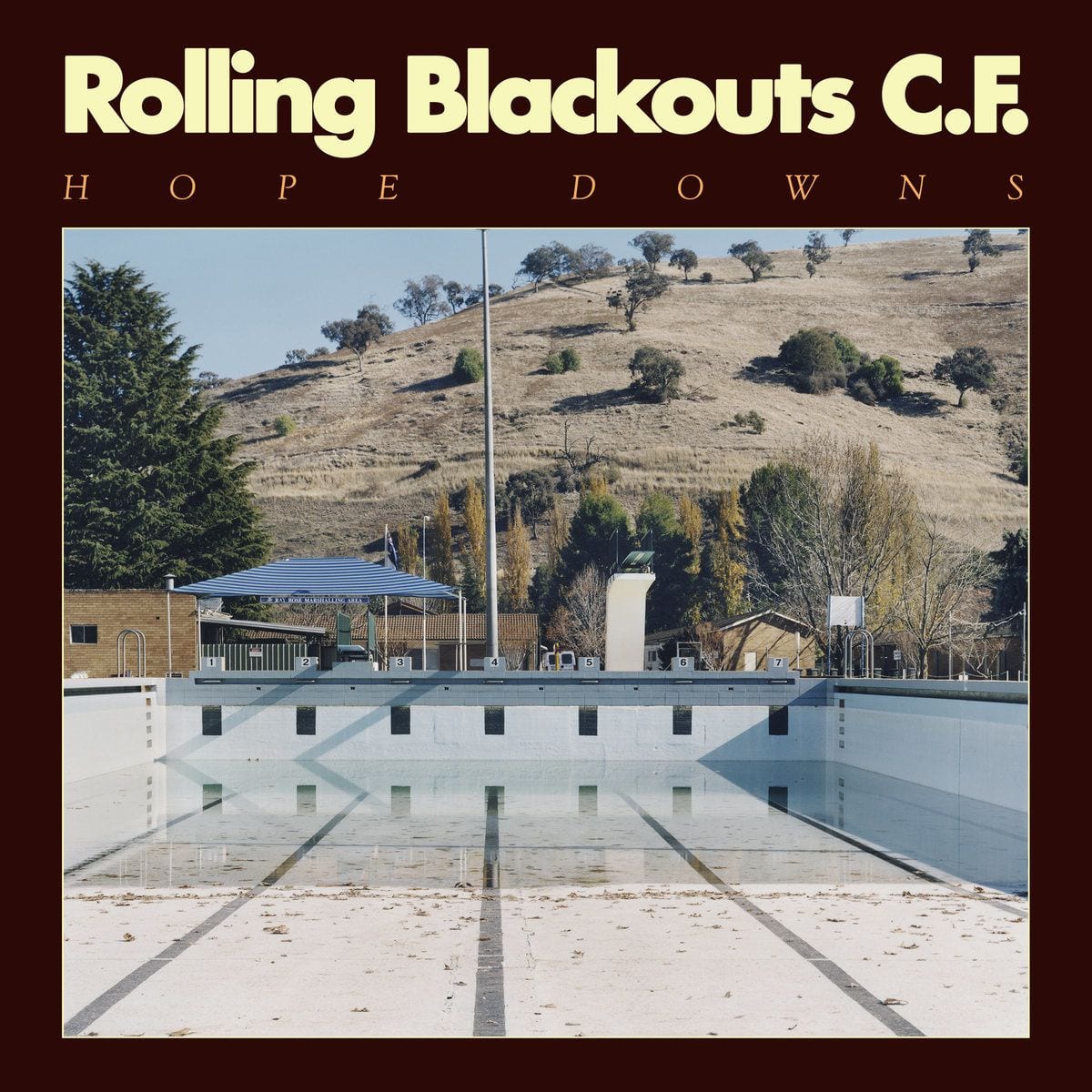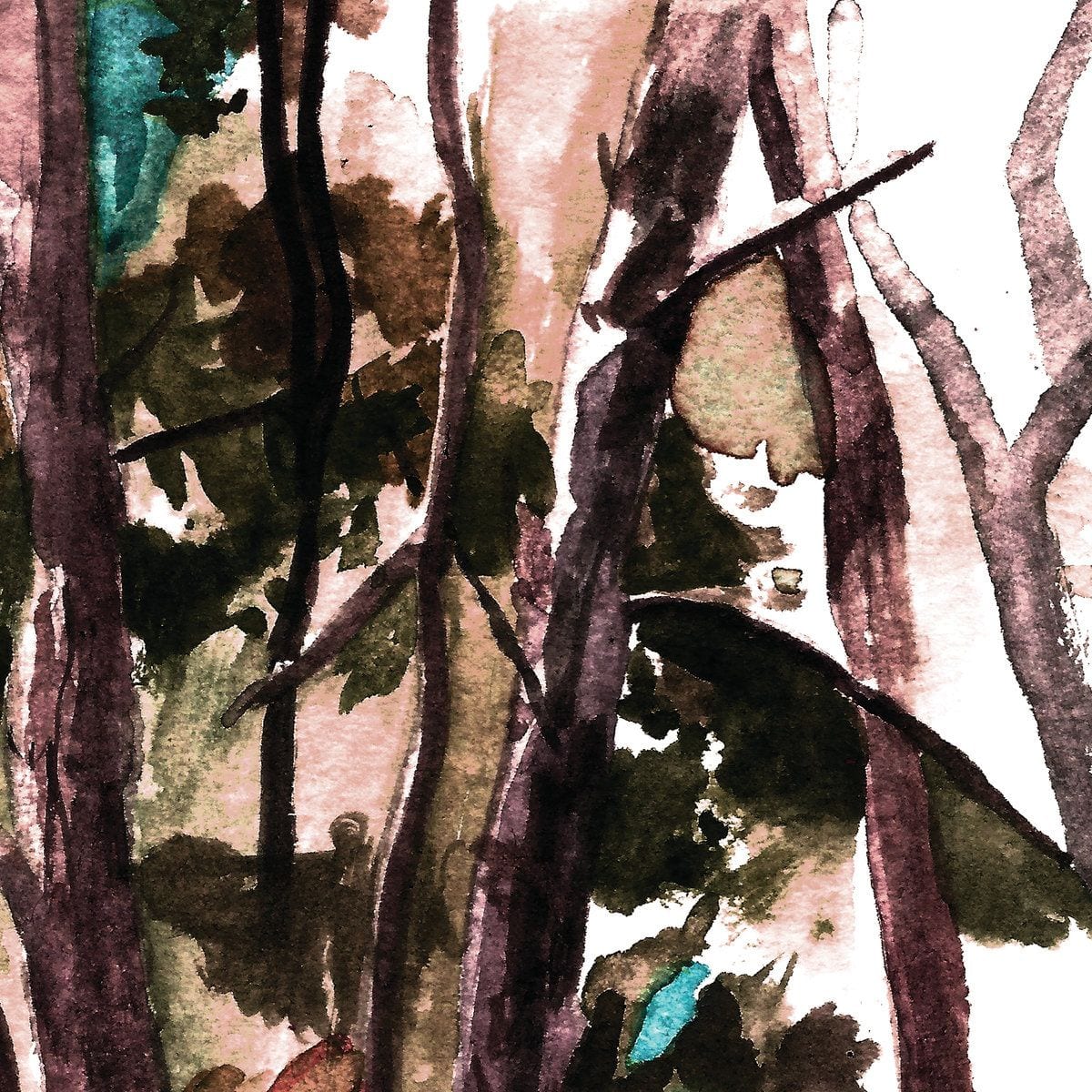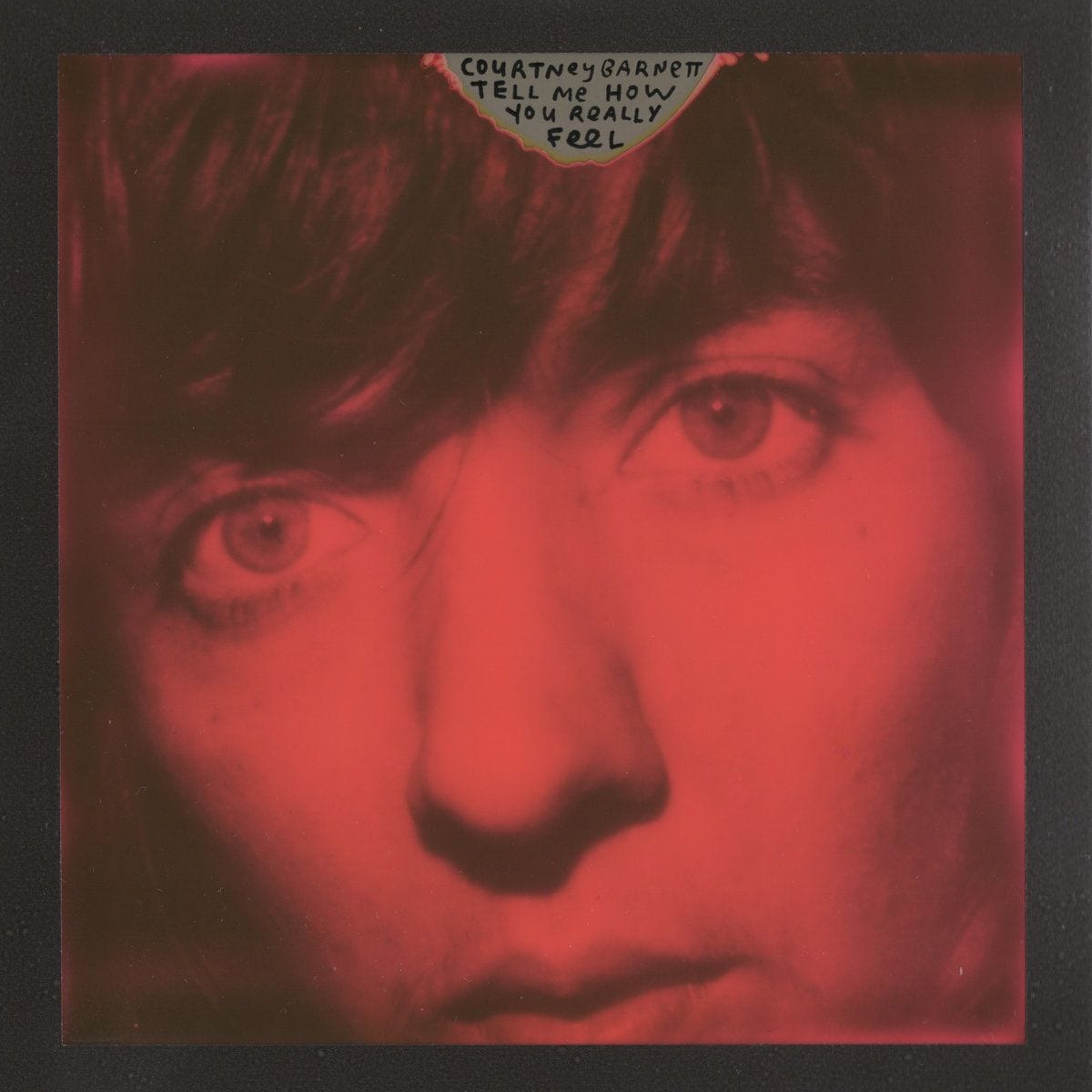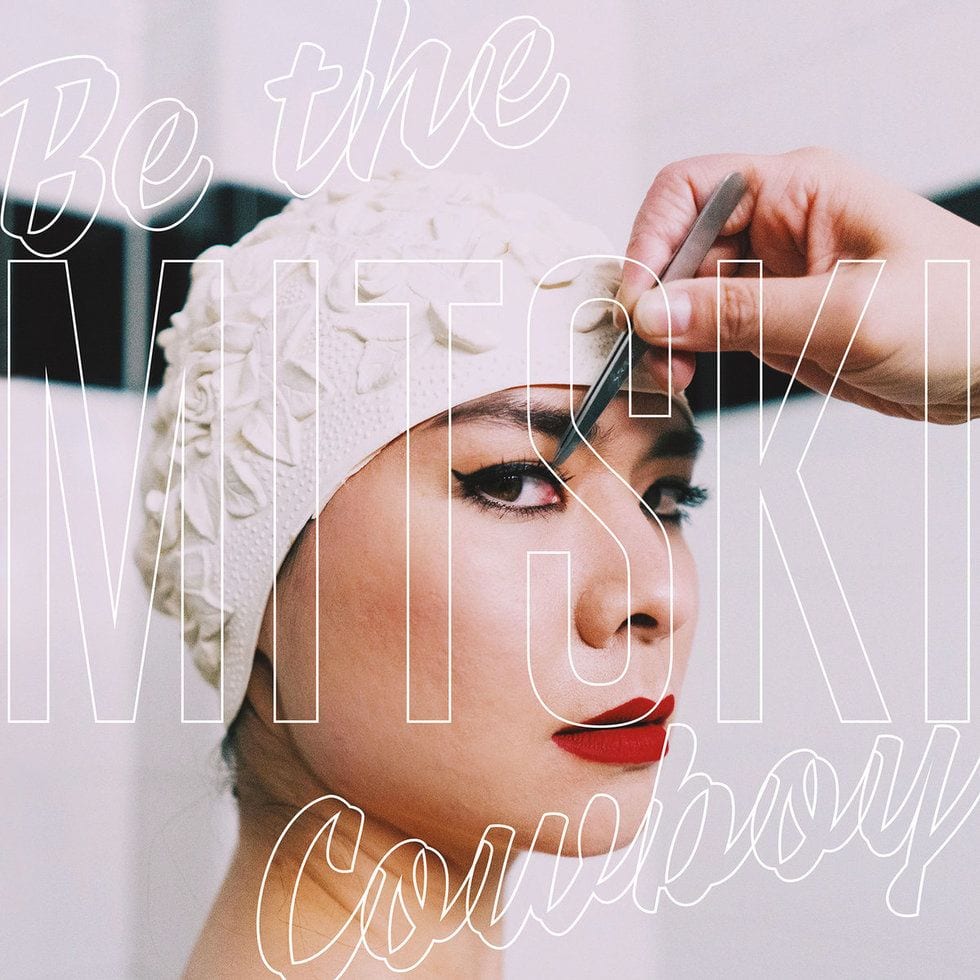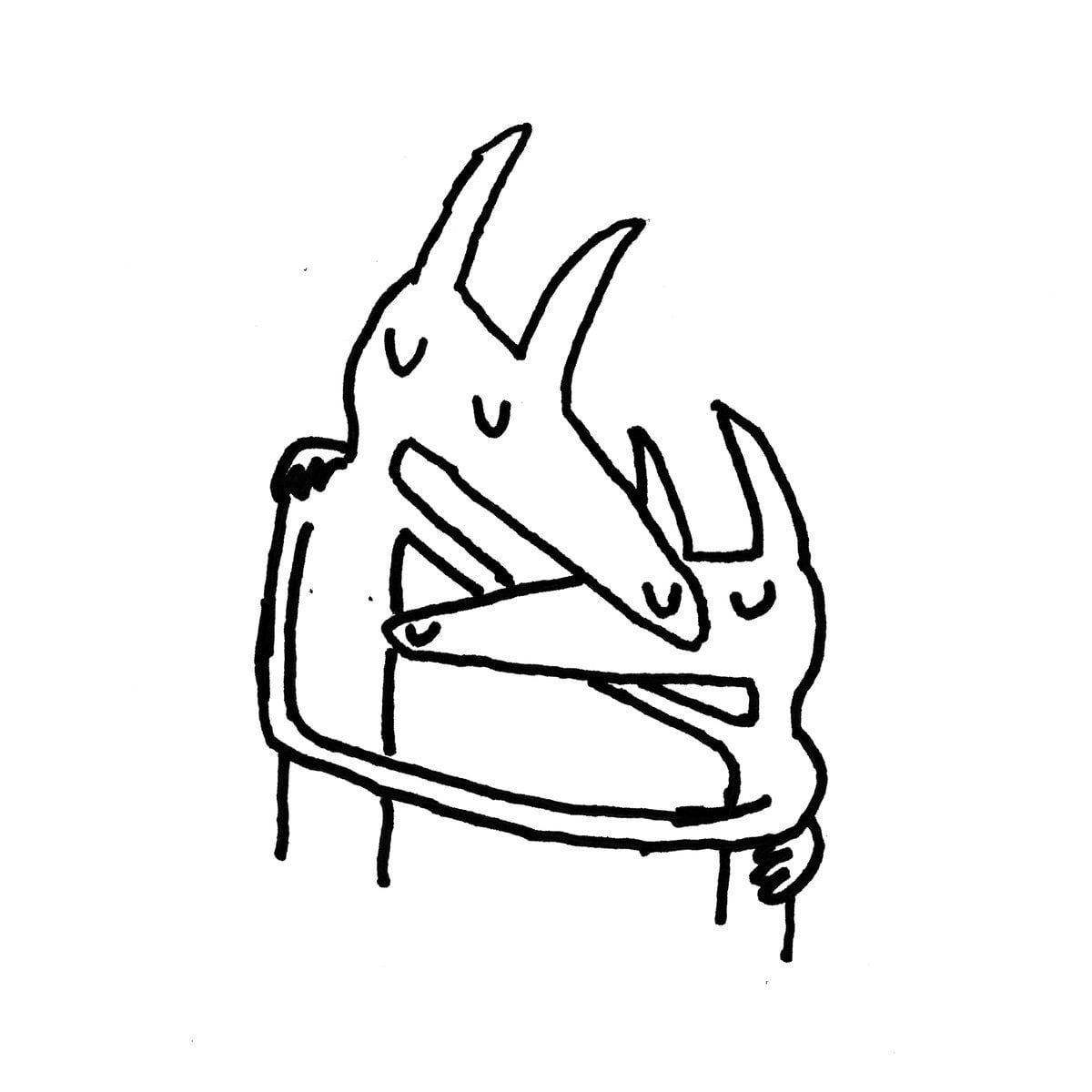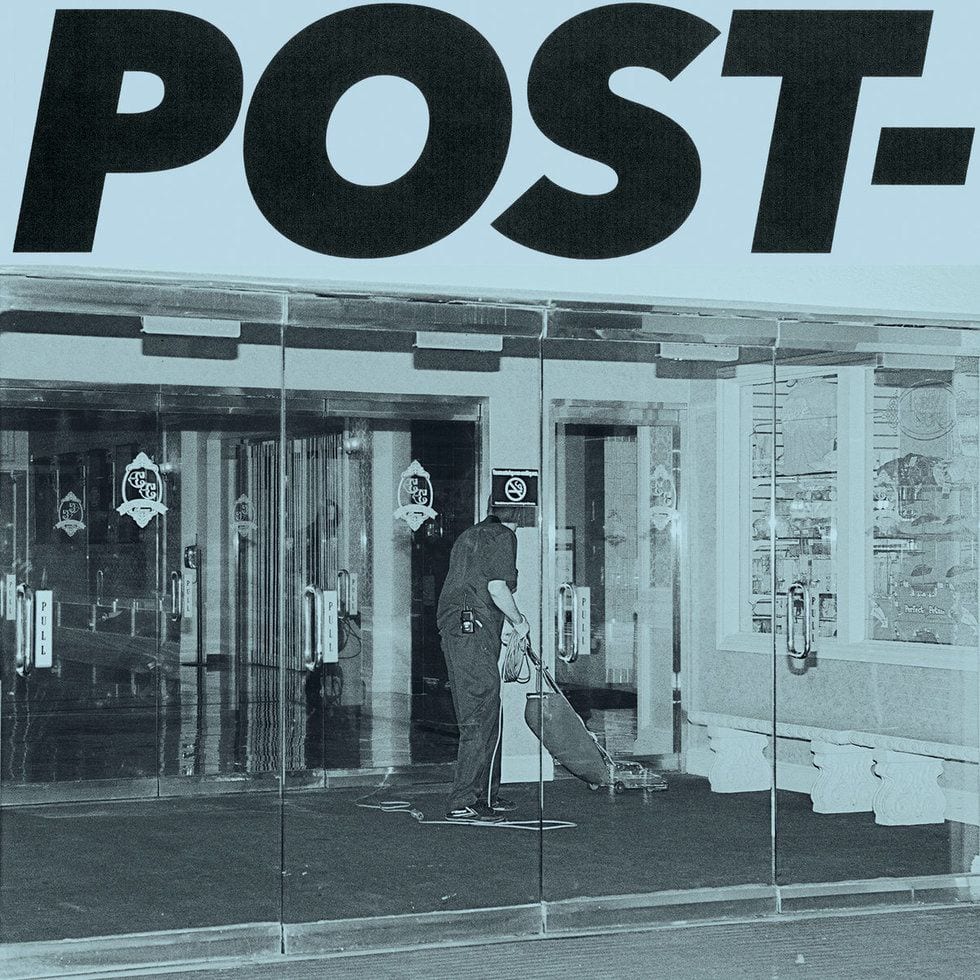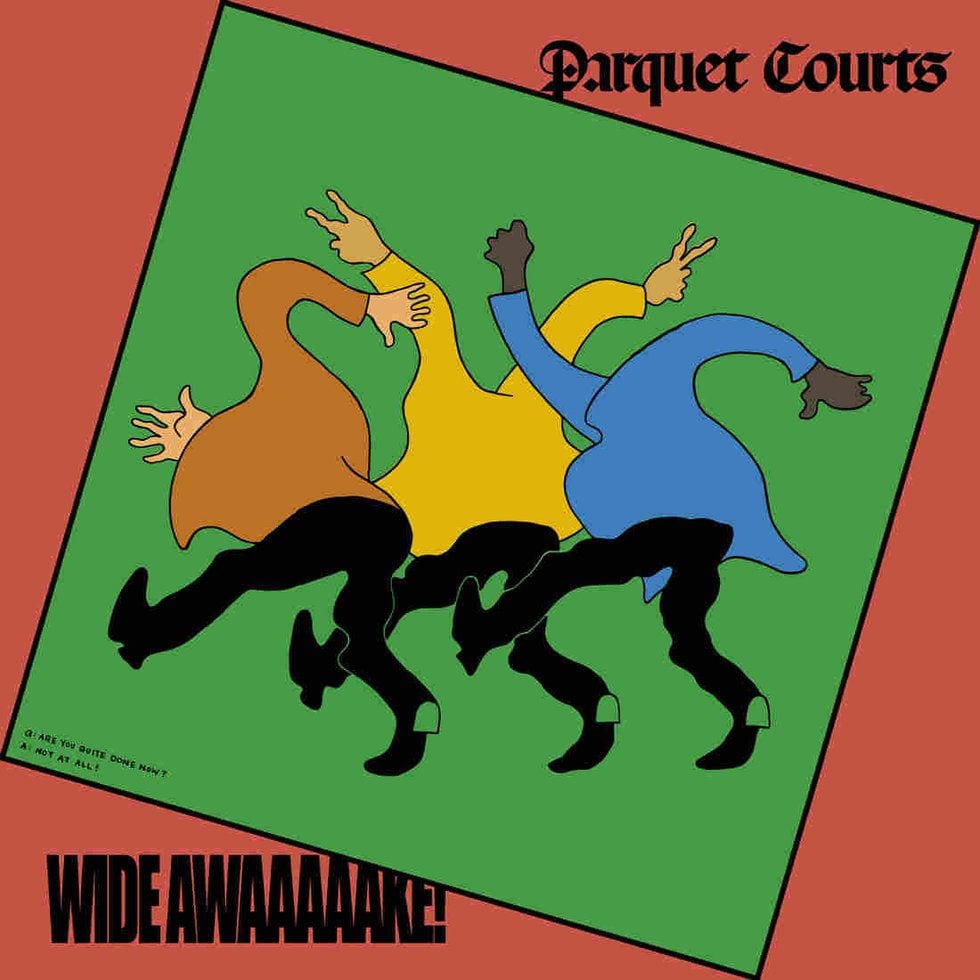Indie rock may be one of the most fluid and intangible terms currently imposed upon musicians. It holds no real indication of what the music will sound like, and many of the artists aren’t even independent. But more than a sonic indicator, indie rock represents a spirit. It’s a spirit found where folk songsters and punk rockers come together to dialogue about what they’re fed up with in mainstream culture. In so doing they uplift each other and celebrate each other’s unique qualities. Here are our ten picks for standout indie rock records of 2018.
10. Lucy Dacus – Historian (Matador)
“The first time I tasted somebody else’s spit / I had a coughing fit.” It’s a line that will go down as one of the greatest openers of all time, and yet, the song just gets better as it plays out, building to the roaring crescendo as Dacus bellows, “You’ve got a nine to five / So I’ll take the night shift / And I’ll never see you again / If I can help it.” Historian opener “Night Shift” is not just a song; it’s a journey. Though the album definitely peaks on this first track, there is so much to unpack throughout the album as Dacus’ storytelling just oozes relatability, vulnerability, and nonchalance, all of which pair perfectly with crunchy guitars and minimalist bedroom rock flavorings (as can be heard on “Timefighter“). – Chris Thiessen
LISTEN: Spotify | WATCH: “Addictions”
+ + +
9. U.S. Girls — In a Poem Unlimited (4AD)
U.S. Girls began as a solo lo-fi bedroom-to-Bandcamp project by Meghan Remy before she got picked up by 4AD in 2015 and subsequently assembled a backing band. Leaning into the moniker, the group now creates music that both celebrates and interrogates the role of women in American pop music from yesteryear.
This year’s In a Poem Unlimited draws on the darker sides of ’60s girl-group pop and ’70s disco, sounds from other eras of unrest, to make an album that’s both upbeat and chilling, poppy, and political. With its sly allusion to “Ltd.”, the title suggests the all-seeing corporate eye that watches over its flock of brands and that would rein in even a poem if it meant making a buck. It’s that patriarchal-bureaucratic gaze that Remy flips off everywhere on this album. On lead single “Mad as Hell”, she channels her disappointment with Barack Obama’s warmongering and failed promises as a progressive into a track that takes to task all the powerful, duplicitous men who, when caught, would smile and expect forgiveness. Meanwhile, on album opener “Velvet 4 Sale“, she fantasizes about terrorizing a paternalistic authority figure, duping him, pointing a weapon at him, and instilling in him “the fear that comes with being prey”.
So many pop songs about sadness and heartbreak, especially those sung by girls from the USA, have ended in reconciliation, even matrimony. In a Poem Unlimited makes a case for pop music about frustration, rage, and punishment—the kind of music we need more of. – Max McKenna
LISTEN: Spotify | WATCH: “Mad As Hell” / “Pearly Gates” / “Rosebud” / “Velvet For Sale”
+ + +
8. OHMME – Parts (Joyful Noise)
Indie rock continues to slough off all the chillwave vibes from the early 2010s; digital delay and suave detachment are ‘out’, while guitar-forward styles like grunge and ’90s alt-rock are ‘in’. Meanwhile, Chicago’s OHMME have been following a guitar rock sound that’s all their own, one that flows from the unique creative partnership of main members Sima Cunningham and Macie Stewart.
On their debut LP Parts, Cunningham and Stewart share most duties: both write, sing, and play guitar, and their performances, with support from drummer Matt Carroll, are thrillingly intertwined. Their guitar playing has an improvisational feel that would border on indulgent if their voices didn’t give the songs such compelling shapes. Like the B-52s, they trade conventional song structure for linear tunes contoured by the peaks and troughs created by vocal harmony and counterpoint. Nor are words an afterthought for OHMME. While their lyrics are sometimes dada-esque (“Why is there water in my eye? / Why is it snowing?”), elsewhere, they are contemporary and keen. “He can’t believe all the distortions I put my body in / Like an acrobat and banshee decided to inhabit / The same fleshy husk, and it’s my job to stand it,” they sing on the title track, a song about the genderedness of pain and anger.
On Parts, satisfaction and resolution are always just out of reach. Cunningham and Stewart’s harmonies are sometimes so close they threaten to become dissonant, and even the poppiest track here, opener “Icon”, refuses to diffuse the tension created by its highly unconventional 5/4 time signature. The songs on Parts are full of images of food, drink, and hunger that are at once surrealist and terrifying, a reminder that our urges, when unsated, give supercharged meaning to the everyday. When your body craves a peach, nothing else will do. Boldly propelled by its own idiosyncrasies and obsessions, Parts is an album that accomplishes something that seems ever harder to do in our reboot culture gone rampant—it suggests something new. – Max McKenna
LISTEN: Bandcamp / Spotify / YouTube | WATCH: “Icon” / “Water”
+ + +
7. Rolling Blackouts Coastal Fever – Hope Downs (Sub Pop)
Following on from two critically acclaimed EPs, Hope Downs sees Melbourne quintet Rolling Blackouts Coastal Fever deliver an exhilarating concoction of jangly guitar, spoken-word lyricism, and hook-laden Americana. Just as 2017’s The French Press EP brought the band comparisons with the Blue Aeroplanes and a host of other beat-poetry-spewing indie rock bands from the ’80s, so this long-awaited debut album aligns them with the likes of Television, and the War on Drugs (oh, and I.R.S.-era R.E.M. — from the ’80s). The adrenalized attack of the record’s interplaying guitars, more than anything, places them in such illustrious company, care of the group’s three singer-guitarists in the form of Fran Keaney, Tom Russo, and Joe White.
It’s also down to the sing-talking introspection of many of the ten tracks, over the top of motorik rhythms. “An Air Conditioned Man” throws the listener into a maelstrom of guitar riffs and squalls which serve as the soundtrack to a commuter’s emotional crisis. “Talking Straight” subsequently jumps out as a slice of pure pop jauntiness, the unlikely vehicle for White’s meditation on the encroaching loneliness that comes from a relationship breakdown: “I wanna know where the silence comes from / Where space originates.”
“Cappuccino City”, on the other hand, offers up the kind of wry observational wordplay that their Melbourne affiliate Courtney Barnett has made her stock in trade (“Roaches climbing the wall, coffee is cold / Service is shitty, in neon light you look so pretty”), while the guitars here are perhaps more Dire Straits than Television. At only 35 minutes, however, these quality songs fly by far too quickly. It’ll make sense to add on a few miscellaneous tracks when copying the album to Side A of your C90 cassette. – Adam Mason
LISTEN: Bandcamp / Spotify / YouTube | WATCH: “An Air Conditioned Man” / “Talking Straight” / “Time in Common”
+ + +
6. Hop Along – Bark Your Head Off, Dog (Saddle Creek)
Frances Quinlan’s reputation proceeds her. As a vocalist, she is unparalleled among her peers, a full-throated punk howler who, somehow, splits the difference between Joni Mitchell and Johnny Rotten. As a songwriter, she is literate and nimble, capable of cohesive story arcs, mosaic abstractions, and first-person firestorms. Because of this, it’s easy to consider Hop Along as nothing more than a Quinlan vehicle — a collective of no-names bashing out melodies behind a charismatic, preternaturally talented frontwoman.
If Bark Your Head Off, Dog proves anything, it’s that this is an egregious misconception. The Philadelphia quartet’s third LP shows a band at the height of its powers; each song crackles with the unmistakable dynamism of young, agile musicians who are totally in sync with one another. Here, there are episodic alt-country ballads (“Not Abel“), Death Cab-esque sing-alongs (“What the Writer Meant“), and bristling folk-rock fantasias (“One That Suits Me“).
But it all sounds cohesive, made by the same group of people with the same vision, a vision that — while readily discernible in the music — can only be approximated otherwise. It’s a vision articulated through ragged guitars, blasts of locomotive energy, and a woman’s wail blooming in the dark. Listen to “How Simple”, the album’s opener, and you can hear this vision in full force. “Don’t worry / We will both find out / Just not together,” Quinlan sings, defiantly, almost calmly, with her feet planted on the ground she’s determined not to leave. It’s a chorus that says a lot about the kind of music that Hop Along create: music that is so proud of its stark individualism, its lo-fi simplicity, and lyrical strangeness, that it demands to be played as loud as possible. – Pryor Stroud
LISTEN: Bandcamp / Spotify / YouTube | WATCH: “How Simple”
+ + +
5. Courtney Barnett: Tell Me How You Really Feel (Milk!)
If Courtney Barnett struggled to follow up a hugely successful debut album full of startlingly original lyrics and propulsive guitar hooks, it certainly isn’t evident on Tell Me How You Really Feel. On her second LP, the Melbourne singer-songwriter demonstrates that she has lost none of her bite and not a bit of her caustic wit while adding to her grunge-indebted sound an element of world-weary introspection. Like the Britpop-jaded Jarvis Cocker on Pulp’s This Is Hardcore (1998), Barnett applies sharp observational humor and idiosyncratic lyrical prowess to the usually cliché-ridden terrain of the Post-Breakthrough Album, on which it is obligatory to confront the downside of fame, the rigors of the rock star lifestyle, and the challenges of being lauded as a “spokesperson for a generation”.
On “Nameless, Faceless”, she ingeniously squares up to an internet troll (“You sit alone at home in the darkness / With all the pent-up rage that you harness”), while on “Charity” she pinpoints the strange predicament of life on the road (“Friends treat you like a stranger and strangers treat you like their best friend”). On “Crippling Self-Doubt and a General Lack of Confidence“, she further owns up to the fact that “I don’t know, I don’t know anything”, over one of her most infectious tunes yet. And it’s all cut through with glorious Nirvana-esque guitar, #MeToo allegiance, and trademark conversational vocals, such that the female perspective on the side effects of popular success has never sounded so compelling and effortless. – Adam Mason
LISTEN: Bandcamp / Spotify / YouTube | WATCH: “City Looks Pretty” / “Need a Little Time” / “Tell Me How You Really Feel”
+ + +
4. Mitski – Be the Cowboy (Dead Oceans)
Despite what her scrappy live performances and guitar-driven early albums would suggest, Mitski has always been an artist who pays careful attention to production. While her 2014 breakthrough, Bury Me at Makeout Creek, often sounded like a noisy rock record, it was actually deliberately crafted, with programmed beats, discreet synth pads, and clever editing. Since that album, Mitski has been arranging her music in more and more surprising ways that capture the energy of three-chord pop-punk but not necessarily the sound, and on this year’s Be the Cowboy, she continues to prove just how adaptable her hooky and economical songwriting can be.
The album’s 14 tracks run the gamut of pop music styles, from country and singer-songwriter to Top 40 and disco. What remains steady throughout the album is Mitski’s strong voice as a songwriter—the way she lets tricky melodies dictate rhythm, the intimacy she evokes in her every use of the word “you”. Mitski often writes about romantic scenarios, although she’s claimed that she’s not addressing any one person but rather a personified concept of music. That can be a bit heady to think about, but in the context of her music, it makes perfect sense. You get the feeling that she needs to direct her creative energies toward something or somebody, whether it’s toward the mystery of art itself or toward you, the listener.
While Mitski has never sounded bigger, Be the Cowboy was made with a very small team of collaborators. In the age of Protools, bedroom pop need no longer sound hissy and lo-fi. With a powerful enough laptop, anybody can make the most bombastic radio-ready jams alone at home. Be the Cowboy reminds us that indie rock can be conceptual, complex, produced—even over-produced—and no less personal for it. – Max McKenna
LISTEN: Bandcamp / Spotify / YouTube | WATCH: “Geyser” / “Nobody”
+ + +
3. Car Seat Headrest – Twin Fantasy (Matador)
Every few years, the music press anoints a new crown prince of fuzz-rock. Prolific garage rocker Ty Segall wore this mantle for a few years, as did Cloud Nothings’ Dylan Baldi, whose knack for making pop-punk sound “cool” again made him a (mostly deserved) critical darling. Praise for these artists has been, at times, rapturous; they’ve been labeled the poet-laureates of lo-fi, artists to watch, the figureheads of entire scenes and sub-communities under the wider “indie” umbrella.
With the release of Car Seat Headrest’s “Something Soon“, it seemed like a new standard-bearer had arrived. Will Toledo’s deft blend of Pixies-indebted dynamics, tongue-in-cheek wit, and DIY scrappiness shot him, seemingly overnight, into the media spotlight. No one said that he was the “voice of a generation” — that epithet so dubiously given to Bob Dylan and scores of zeitgeist-setting artists afterward — but they might as well have. If you listen to Twin Fantasy, a re-recording of a self-released LP Toledo made in 2011, and you listen closely, you can hear the human behind the hype.
A flawed, scattershot, yet often breathtaking work, the album is a thrilling saga of post-adolescent missteps, triumphs, insecurities, and desires. Each song shows a different side of a many-sided soul: “Cute Thing” is an anthemic eruption of teenage lust; “Beach Life-in-Death” follows Toledo through 13 minutes of fulsome self-derision; and “Stop Smoking“, perhaps the best composition here, is short, sweet, and transcendent. It’s deeply personal music — music unconcerned about the scene around it or the acclaim it could earn — and that’s why it’s worth listening to. – Pryor Stroud
LISTEN: Bandcamp / Spotify / YouTube | WATCH: “Nervous Young Inhumans”
+ + +
2. Jeff Rosenstock – POST- (Polyvinyl)
In the Trump era, the political album is a gamble. With every TV, smartphone, radio, and newspaper spewing out a real-time play-by-play of the current administration, the media landscape has never been more saturated with political content. It’s nearly impossible to get away from the noise, and music, for many of us, offers a much-needed safe haven. Who wants to hear an anti-Trump op-ed in the form of an Ariana Grande single?
Yet music also offers a way of understanding — and ultimately confronting — the absurdism of today’s sociopolitical climate, and no artist is better at capturing this absurdism in ballistic power-pop form than Jeff Rosenstock. POST-, his ambitious follow up to 2016’s much-lauded WORRY., is a cathartic blast of sprawling, high-energy ska-punk set in an America without hope or conviction.
“Dumbfounded, downtrodden, and dejected / Crestfallen, grief-stricken, and exhausted,” he wails at the beginning of “USA“, summing up, in just a few words, how many of us felt in the wake of the 2016 election. “Beating My Head Against A Wall” and “Powerlessness” also transfigure post-Obama anxiety into rousing, mile-a-minute anthems. There’s no sanctimonious speeches here, only a man screaming at the top of his lungs about how terrible things are. Sometimes, that’s all you need to feel a little better. – Pryor Stroud
LISTEN: Bandcamp / Spotify / YouTube | WATCH: “9/10” / “Melba”
+ + +
1. Parquet Courts – Wide Awake! (Rough Trade)
There are many forms and styles which reside under the broad umbrella of indie rock. But perhaps the most important trait of this umbrella is its melting pot nature which allows artists to stretch and experiment with harmonies, timbres, and tempos so varied and unique which combined create something truly masterful. It’s the trait which allows New York punk group Parquet Courts and producer Danger Mouse to add shakers, police whistles, and funky bass lines fit for Funkadelic to the tongue-in-cheek titular “woke” anthem which more serves to make fun of white people’s self-proclaimed “wokeness” and less to claim this “wokeness” for themselves.
Yet, while not taking themselves too seriously (there’s a song called “Freebird II“), Parquet Courts has a lot to say about the world they find themselves in. “Savage is my name because savage is how I feel when the radio wakes me up with the words ‘suspected gunman’,” Andrew Savage sings on the scathing “Violence” which asserts that “Violence is so omnipresent / You forget to notice it happens every day.” Rarely is a band capable of striking a balance between lightheartedly uplifting and mournfully sobering. Parquet Courts have perfected that balance here. – Chris Thiessen
LISTEN: Spotify | WATCH: “Freebird II” / “Wide Awake”
+ + +


